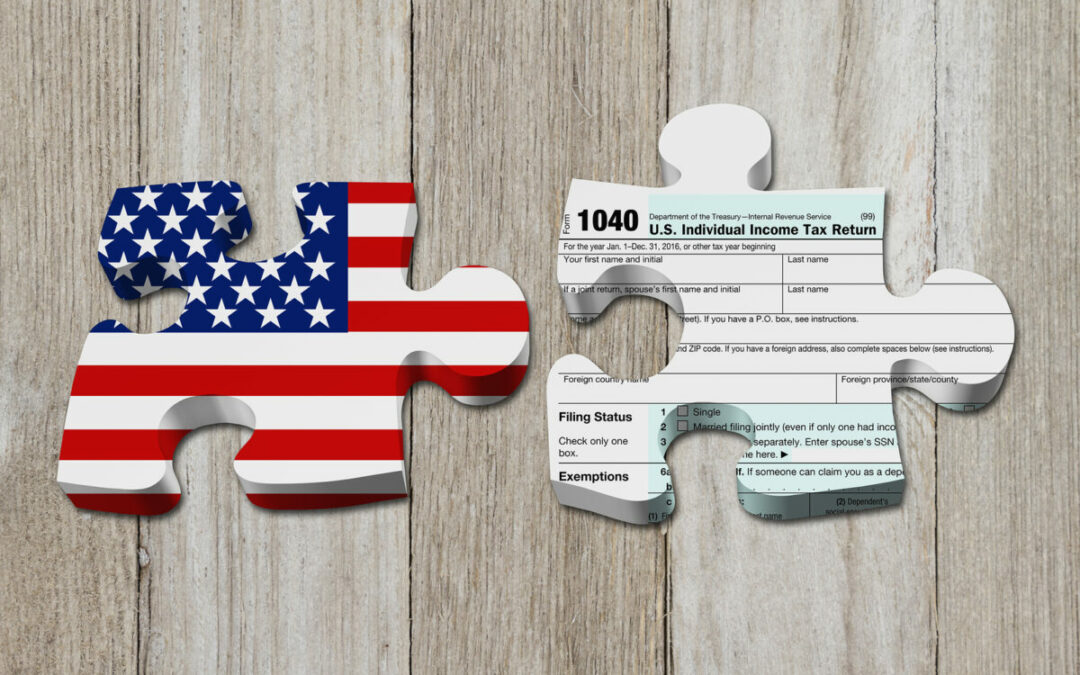Residing or retiring outside the United States does not exempt you from filing U.S. taxes.
📌 Here are some important aspects of tax responsibilities to consider:
- The United States is one of only two nations globally that imposes taxes on the worldwide income of its citizens.
- Expatriates are required to file their annual income tax returns by June 15, although any tax payments are due by April 15.
- Taxation practices for expatriates’ employment or retirement income can differ significantly from one country to another, with some nations not taxing such income at all.
- While the federal government provides certain tax benefits for expatriates, these may not always apply to state tax filings.
Unlike most countries that only tax income generated within their borders, the United States taxes its citizens on their global income. This unique approach makes it one of only two countries with a citizenship-based tax system, the other being Eritrea in East Africa.
➡️ At Wave Tax, we identify several critical considerations for individuals living outside the United States:
🔸Expatriates have until June 15 to file their income tax returns
U.S. citizens living and working abroad must submit an annual income tax return, with an additional two-month extension available if needed. The filing deadline is June 15 each year, and similar to U.S. residents, they can request an extension for more time to finalize their return.
However, it is important to note that tax payments are due by April 15, and failing to pay the required amount can lead to penalties and interest.
You may also read: Recommendations for Preventing an IRS Audit
🔸You may be required to file a tax return in your country of residence
U.S. expatriates may be required to file tax returns in their country of residence, as most nations operate under residence-based tax systems.
For instance, Spain classifies individuals as tax residents if they spend over 183 days within a calendar year in the country.

🔸Some countries impose taxes on retirement income
If you retire abroad and receive funds from investments or retirement accounts, you may face taxation based on the local laws. Conversely, certain governments provide tax incentives to attract expatriates and retirees.
Belize, for example, offers a Qualified Retirement Program for expatriates aged 40 and above, who hold nationality from a qualifying country and receive a minimum retirement income of $2,000 monthly. Eligible individuals are exempt from taxes on income sourced outside of Belize, including Social Security or U.S. pensions.
Other nations, such as Panama, Costa Rica, and the Philippines, also have favorable tax regulations for U.S. expatriates, particularly regarding retirement income.
🔸To mitigate the issue of double taxation, the Foreign Tax Credit is available
The U.S. citizenship-based tax system, combined with the residency-based systems of other countries, can lead to double taxation for expatriates.
However, the foreign tax credit allows individuals to offset their U.S. tax liability. This credit is calculated based on a formula that considers both foreign and U.S. income for the year.
If the credit exceeds the tax owed in a given year, it can be carried back or forward for up to ten years.
➡️ READ: Some IRS tax tips for people living or retiring abroad clicking here
🔸The Foreign Earned Income and the Housing Exclusion
The foreign earned income exclusion permits individuals to exclude income earned abroad from their U.S. tax return. For the 2023 tax year, individuals may exclude up to $120,000 of qualifying foreign income on their U.S. tax returns.
Additionally, the foreign housing exclusion permits the deduction of reasonable expenses related to an eligible home in a foreign country from U.S. federal taxes, subject to certain limits.

To be eligible for these tax benefits, one must either be a bona fide resident of the foreign country or have a physical presence there for a minimum of 330 days within a 12-month period.
It is important to note that you cannot simultaneously utilize both the foreign residence relief and the exclusion, so evaluating your tax rates in both jurisdictions is essential to determine the most advantageous option.
🔸States have their own tax regulations
Understanding federal tax responsibilities is just part of the equation for those residing outside the United States. If you maintain a home in the U.S., it is crucial to be aware of your state tax obligations as well.
While many states acknowledge federal credits and deductions, this is not universally applicable. For instance, California does not recognize the foreign earned income exclusion, which could result in double taxation on significant income if you own a home there while working abroad.
Therefore, if you intend to keep a U.S. residence while living overseas, it is wise to carefully consider your choice of residence.
🔸Engage with a knowledgeable tax professional when planning your move
At Wave Tax, we strongly advise thorough pre-planning before relocating to another country. This approach not only aids in selecting a tax-friendly destination but also helps in avoiding expensive errors.
Be mindful that actions such as opening a brokerage account, purchasing rental property, or earning self-employment income abroad can lead to unique tax implications.
To prevent unexpected tax liabilities, it is prudent to consult with a professional before making decisions about living or retiring in a foreign locale.
📍Wave Tax is here to assist you. Contact us at info@wavetax.us

